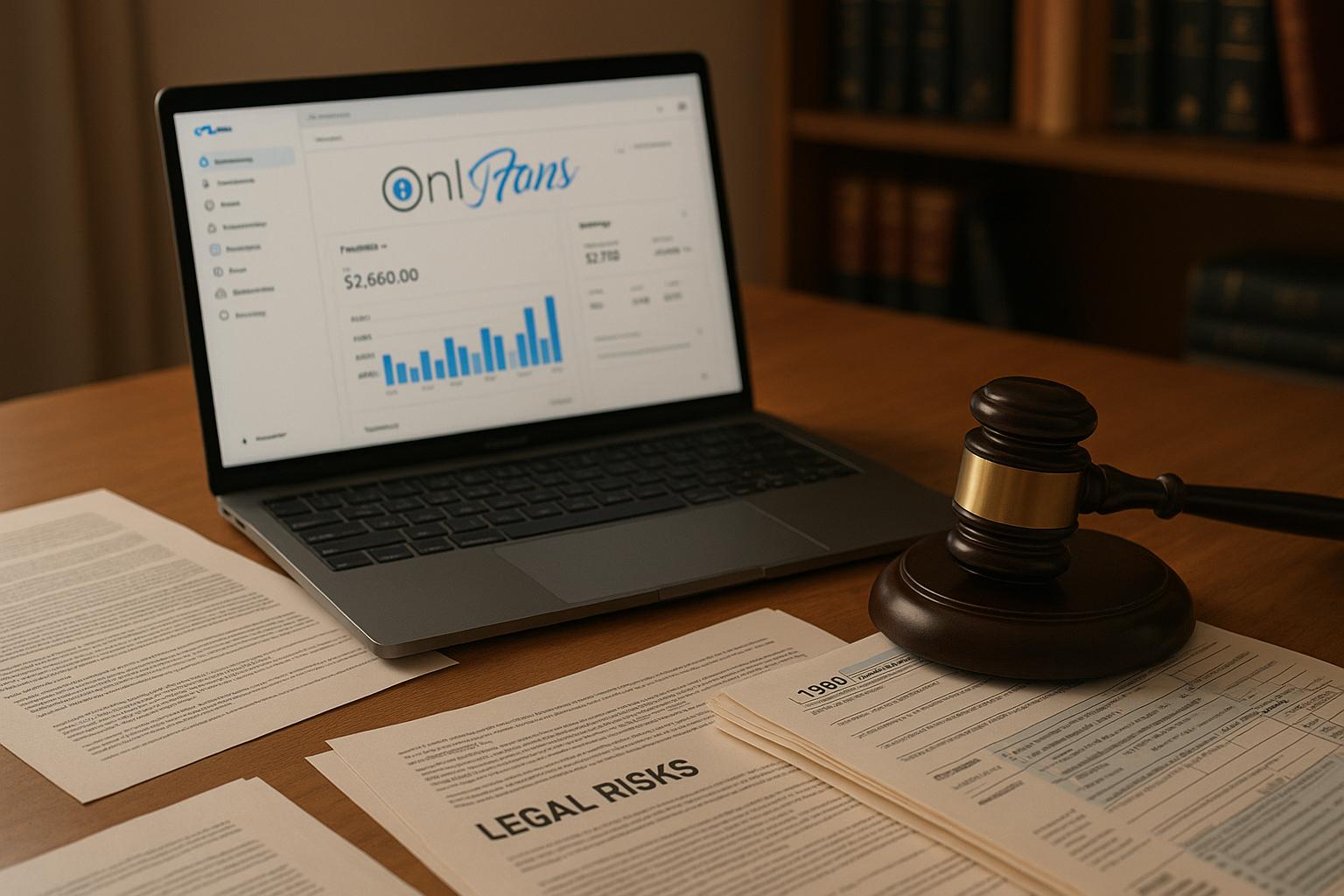
OnlyFans creators face seven key legal risks that can impact their safety, finances, and content control. These challenges stem from copyright theft, privacy breaches, tax issues, and more. Here's a quick breakdown of the risks and how to address them:
- Copyright Theft: Protect your content from being stolen or reposted without permission by using watermarks, DMCA takedowns, and legal support.
- Contracts: Poorly written agreements with third parties can strip you of content rights or earnings. Always review terms carefully and consult a lawyer.
- Taxes: As self-employed individuals, creators must report all income, pay self-employment taxes, and keep detailed records to avoid penalties.
- Privacy Risks: Doxxing, stalking, and scams are common. Use pseudonyms, scrub metadata, and separate personal and professional accounts.
- Fake Accounts: Scammers impersonate creators to deceive fans and damage reputations. Monitor for fake profiles and act quickly if found.
- Age Verification: Failure to confirm the legal age of individuals in content can lead to severe legal consequences, including criminal charges.
- Cybersecurity Threats: Phishing, hacking, and fraud are on the rise. Use strong passwords, two-factor authentication, and secure networks.
Creators must take proactive steps to safeguard their content, finances, and personal safety. Legal consultations and robust cybersecurity measures are essential investments in protecting their careers.
What to Do If Your OnlyFans Content is Stolen
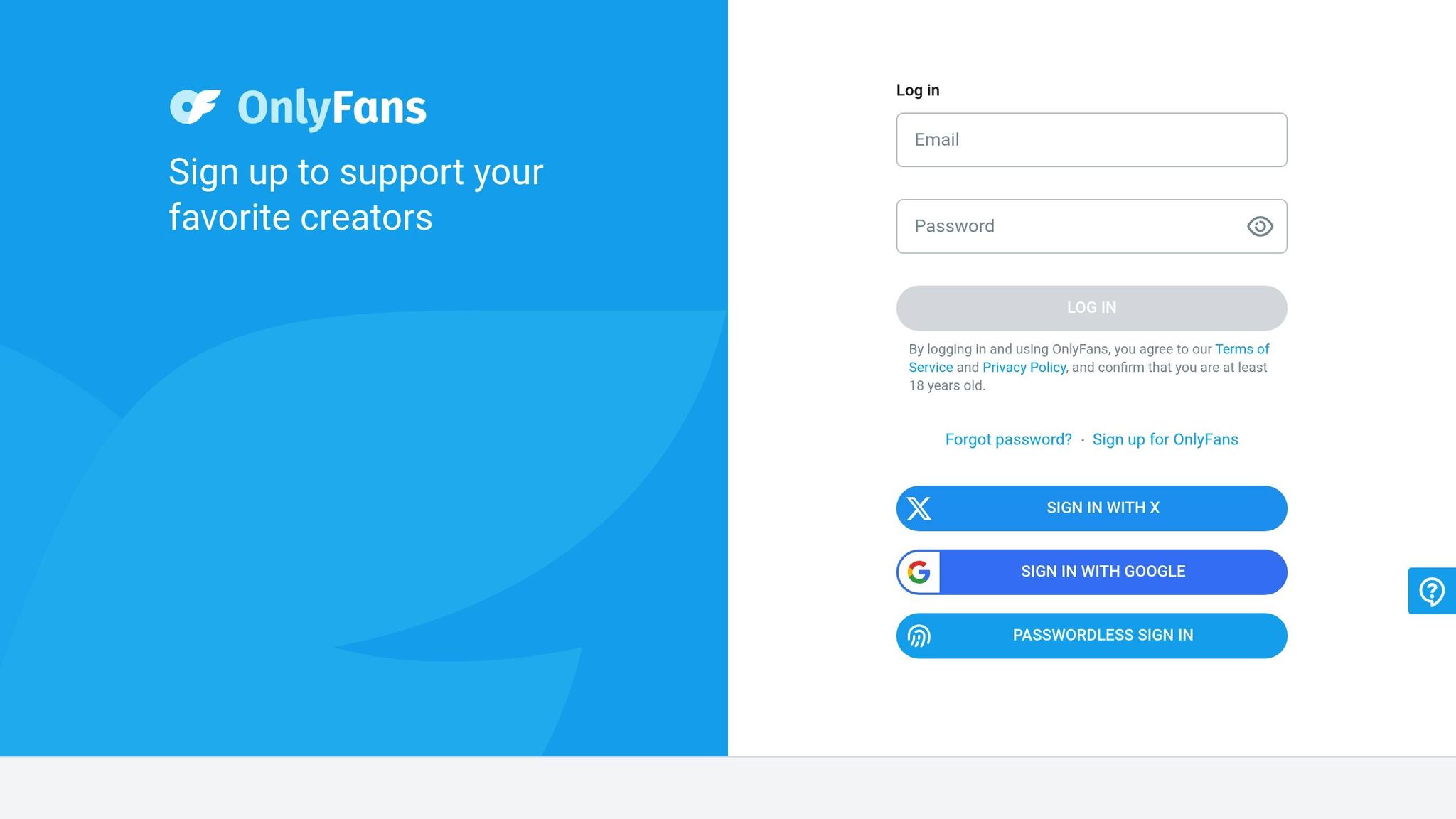
1. Copyright and Content Theft
Protecting your creative work is crucial, especially when sharing it online. When you upload original photos, videos, or other materials to OnlyFans, you automatically hold the copyright to that content. However, this ownership doesn’t stop others from stealing, reposting, or even selling your work without permission. Unfortunately, stolen OnlyFans content often ends up on adult tube sites like Pornhub, RedTube, and Xhamster, as well as on social media platforms such as Reddit, Tumblr, and Twitter.
To discourage misuse, take advantage of OnlyFans’ watermarking tools. Add your username or branding to your content and place the watermarks in spots that are hard to crop out. This simple step can make a big difference in protecting your work.
Regularly monitor your content online. Reverse image searches and Google Alerts for your stage name can help you track down unauthorized uses. For an added layer of protection, some creators use services like DMCA Force, which provides a free piracy scan and paid options for ongoing monitoring.
If you find your content being misused, act quickly. File DMCA takedown notices to have the infringing material removed. OnlyFans has a dedicated copyright team that can assist with this process. For repeat offenders, start with a cease and desist letter for minor issues. In more severe cases, consider consulting an intellectual property attorney to explore legal action in federal district court. The penalties for copyright infringement are steep - statutory damages range from $750 to $30,000 per work, and up to $150,000 for willful violations.
To further protect your content, you can explore advanced measures like digital fingerprinting, geo-blocking, and educating your subscribers about copyright rules.
Content theft doesn’t just hurt your revenue - it can damage your brand. Taking proactive steps is essential to safeguard your work. Up next, let’s examine potential contract issues.
2. Contract Problems
Jumping into contracts with third-party agencies or management companies without fully understanding the fine print can spell trouble for OnlyFans creators. What may seem like a great opportunity at first glance can later reveal hidden clauses that strip away your control over content or expose you to financial risks.
Content ownership is a key concern. Your contract should explicitly state that you retain full ownership of your OnlyFans account and all the content you create. Management companies should only have temporary, limited access to your account, and once the agreement ends, all rights to your content should revert to you. Be cautious with vague language like "rights to content" - these should only apply to promotional purposes, nothing more.
Revenue splits and hidden fees can drain your earnings faster than you might expect. Standard management fees range from 10–20% of net profits. Make sure these fees are calculated after deducting expenses, and always request detailed monthly financial reports to ensure transparency.
Termination clauses often skew in favor of the agency, leaving creators at a disadvantage. Avoid auto-renewal clauses and insist on clear termination terms, such as a 30–60 day notice period. Any exit fees should be limited to reasonable administrative costs - nothing excessive.
Creative control restrictions can also limit your freedom and earning potential. Your contract should state that you retain final approval over your content and that any posting schedule is mutually agreed upon, with room for flexibility. Reject any clauses that force you into specific content styles or themes that you're uncomfortable with.
Legal liability is another critical area to address. If the management company is making financial or marketing decisions on your behalf, the contract should clearly outline who is responsible for what, including who covers legal fees in the event of disputes.
These potential pitfalls make it essential to have clear, well-negotiated agreements in place before working with third parties. For example, Daily Jones and Company recently restructured a talent management contract to ensure creators retained their intellectual property rights and secured unilateral termination rights, along with fair profit sharing.
Spending $2,500 on a legal consultation might seem steep, but it can save you from years of financial headaches. Always document agreements, verify terms against industry standards, and work only with reputable agencies. Up next, let’s dive into tax compliance issues.
3. Tax Problems
Handling taxes is a major legal challenge for OnlyFans creators. The IRS classifies these creators as self-employed, meaning all income - whether from subscriptions, tips, or sponsorships - must be reported.
As of 2023, OnlyFans has distributed $12.5 billion to 2.1 million creators. For those earning more than $600 annually, the platform files a Form 1099-NEC with the IRS, creating a clear record of payments. This paper trail makes it nearly impossible to hide unreported income.
"Form 1099 income must be reported to the IRS, and failing to include it on a tax return may lead to an IRS notice. If left unreported, the IRS can adjust the tax liability, possibly adding penalties and interest." – Viola Robinson Faust, CPA, EA, Columbia, South Carolina
Self-employment taxes are a notable burden. Creators owe a 15.3% self-employment tax in addition to regular income tax rates.
The penalties for failing to comply with tax laws are steep and escalate quickly. Missing a filing deadline results in a 5% monthly penalty, up to 25%, with a minimum penalty of $510 for returns filed over 60 days late. On top of that, accuracy-related errors incur an additional 20% penalty on the underpaid amount .
If your total tax liability exceeds $1,000, quarterly estimated tax payments are required. Missing these deadlines leads to penalties and interest charges that continue to grow until the debt is paid off.
Keeping detailed records can significantly lower your tax bill through legitimate deductions. Expenses like editing software, video equipment, home office costs, and even a portion of your phone bill used for work can be written off. To maximize these deductions, maintain accurate records - including digital copies - for at least three years .
The IRS cross-checks tax returns with income records submitted by platforms like OnlyFans, making discrepancies easy to detect. If you spot an error in your filing, submit an amended return as soon as possible to minimize penalties.
Once taxes are squared away, creators should turn their attention to privacy and data security concerns.
4. Privacy and Data Risks
Privacy issues on OnlyFans aren't just about inconvenience - they can directly impact personal safety. When personal information is exposed or misused, creators face serious risks like doxxing, stalking, and identity theft. These threats go beyond the digital world, creating real-world dangers.
The numbers tell a concerning story. A staggering 95% of creators surveyed reported experiencing at least one instance of hate or harassment on the platform. Even more alarming, 70% of creators said they frequently faced bullying, trolling, sexual harassment, or identity attacks, with 36% indicating that these incidents occurred regularly.
One major vulnerability lies in leaked metadata. Details like location data, device information, or timestamps can unintentionally provide enough clues for someone to track a creator’s whereabouts. Even linking personal social media accounts to an OnlyFans profile or sharing seemingly harmless details - like favorite hangouts or travel plans - can open the door to stalking.
Financial risks are another pressing concern. Creators are often targeted by phishing scams or fraudulent promoters offering fake collaborations. These scams aim to steal sensitive information, such as banking details or login credentials, through clever social engineering tricks.
To protect yourself, it’s crucial to create a clear separation between your personal and professional lives. Use pseudonyms, dedicated email addresses, and separate phone numbers for your OnlyFans activities. This helps shield your personal identity and limits the overlap between your personal and professional digital footprints.
When it comes to content, security should be a priority. Always scrub metadata from photos and videos to remove hidden details like location or device information before uploading. Additionally, avoid sharing personal details on your profile - this includes your real address, travel plans, or anything else that might identify you.
For financial safety, stick to OnlyFans' secure payment system and avoid handling payments outside the platform. Be cautious with custom requests and insist on upfront payment through the platform’s secure channels.
Regularly monitor your online presence to catch unauthorized content early. Keep tabs on brand mentions, tags, and hashtags to stay informed about your digital footprint.
OnlyFans offers privacy tools that can help you manage risks. Use the blocking and muting features liberally to remove suspicious users. Be wary of direct messages from random promoters - legitimate business opportunities typically come through official channels. If you notice anything suspicious, report it immediately to safeguard yourself and others.
The platform’s verification process aims to reduce risks by confirming the accuracy of user data, helping to prevent misuse by minors. However, it’s essential for creators to take additional steps to protect their privacy and security beyond what the platform offers.
Next up, let’s delve into how fake accounts and identity theft threaten creators' brands.
sbb-itb-3858882
5. Fake Accounts and Identity Theft
On top of privacy concerns, creators on OnlyFans face another serious challenge: fake accounts that steal their identity. This isn’t just about someone hacking into your account. It’s about scammers impersonating you - using your name, photos, and content to create convincing duplicates that can deceive fans and harm your reputation.
Here’s how it often happens: scammers scrape content from your public social media profiles, like Instagram or TikTok, and use those images to set up fake OnlyFans accounts. They might copy your bio, mimic your style, and even steal your photos to make the fake profile seem authentic.
The damage these impersonators can cause is twofold. First, they can scam your fans - charging for fake custom requests or tricking them into fraudulent payments. Second, they can hurt your brand by posting misleading or offensive content that undermines your credibility.
To spot fake profiles, you’ll need to stay alert. Watch out for inconsistencies, such as profile details that don’t match, irregular posting schedules, or accounts without verification marks. If fans mention interactions or content you didn’t create, that’s a major red flag.
If you do discover a fake account, act fast. Use OnlyFans' "Reporting Stolen Content" feature, take screenshots as evidence, and secure your accounts by updating all passwords. Keep any correspondence with the scammer, and if necessary, file a DMCA takedown notice for stolen content being used on other platforms.
Preventing impersonation starts with protecting your identity. Use an alias instead of your real name for your OnlyFans persona, and avoid reusing content across multiple social media platforms.
Watermarking your content is another effective deterrent. OnlyFans offers built-in watermarking tools to help safeguard your photos and videos. Additionally, scrub metadata from your uploads, as this information can help scammers create more convincing fake accounts.
Staying proactive is key. Regularly monitor the internet for your name or unique phrases from your content. Reverse-image searches can help you find unauthorized use of your images, and setting up Google alerts for your stage name can quickly flag impersonation attempts.
Legally, fake accounts violate your rights to your name and likeness. These impersonators not only breach platform rules but may also break federal laws by misrepresenting you or sharing your content without consent.
For severe cases - like ongoing harassment or significant financial losses - consulting a lawyer can help you explore civil action. Some creators have successfully sued for damages related to identity theft and defamation.
Up next, we’ll dive into how lapses in age verification can create even more legal headaches.
6. Age Verification and Consent Issues
Ensuring the legal age of everyone involved in your content isn’t just a best practice - it’s a legal requirement. Overlooking proper age verification can result in severe consequences, including criminal charges and hefty penalties.
Criminal Defense Attorney Andres Sanchez emphasizes the gravity of these laws:
"It's important to understand that possessing, creating, or distributing explicit images of minors, including nude photos, is illegal in the United States under federal law. This is the case regardless of whether you knew the person was a minor. Child pornography laws are very strict and can carry severe penalties."
Adding to these federal regulations, many states have introduced stricter rules. By May 2025, 24 states had passed laws mandating age verification for accessing online adult content. For creators, this means adhering to rigorous standards to avoid potential legal pitfalls. The stakes are high: failing to comply can lead to substantial fines. For instance, Texas Attorney General Ken Paxton pursued lawsuits against XHamster and Chaturbate, seeking penalties of $1.67 million and $1.78 million, respectively, for inadequate age verification measures. Meanwhile, Florida law allows fines of up to $10,000 per minor exposed to unverified content.
To address these risks, OnlyFans has implemented stringent verification protocols. The platform requires government-issued ID verification for all accounts, using both proprietary technology and third-party tools to confirm ages and identities. In 2021, approximately 59% of account applications were rejected for failing to meet these standards. According to OnlyFans:
"OnlyFans requires ID verification to confirm age and identity, aiming to prevent unauthorized or underage accounts. The platform states that it securely stores this information. While no system is entirely risk-free, OnlyFans implements measures to protect user data."
Creators are encouraged to maintain thorough records of age verification for everyone featured in their content. Agencies working with OnlyFans creators should also ensure that all individuals meet legal age requirements before signing contracts. The platform takes additional precautions by conducting ongoing checks. Creator accounts are subject to secondary "selfie checks" every 30 days, along with cross-checks to verify the consistency of user information.
If any content involving underage individuals is discovered, it must be immediately removed and reported to OnlyFans and law enforcement.
Emerging technologies are also playing a role in strengthening verification processes. Companies like Ondato use AI to analyze biometric markers with near-perfect accuracy. These advancements add an extra layer of protection for creators who follow proper verification protocols.
Some states are taking enforcement even further. For example, Ohio’s HB 96, enacted in 2025, includes criminal charges for violations, highlighting how seriously lawmakers view failures in age verification.
7. Scams and Cyber Attacks
OnlyFans creators are increasingly becoming targets for cybercriminals. The platform's combination of private content and financial transactions makes it especially appealing to hackers and scammers seeking quick financial gains. This surge in cyber threats adds another layer of complexity to the legal and privacy issues already faced by creators.
The numbers are alarming. Cyber attacks on OnlyFans creators have skyrocketed, with incidents on social media increasing by 733% in the past year and phishing cases climbing 47% over the same period. Phishing scams, which aim to steal login credentials, account for over 60% of these hacking attempts. Creators are also experiencing a 236% rise in spam compared to other content creators. On top of that, one in five accounts is estimated to suffer from impersonation, content theft, or identity fraud.
Another significant threat comes from fraudulent management agencies. Similar to issues with contracts, these scams often prey on creators by promising unrealistic earnings. They may demand full access to accounts, enforce steep exit fees, or include automatic renewal clauses that lock creators into exploitative agreements.
Protecting Your Account
To safeguard your account, a multi-layered cybersecurity strategy is essential. Start with the basics: use strong, unique passwords and enable two-factor authentication (2FA), ideally through an authenticator app, to add an extra layer of protection. A password manager can also help you keep track of your credentials securely.
Be vigilant against phishing attempts. Remember, OnlyFans will never request your password via email. Always type "onlyfans.com" directly into your browser instead of clicking on suspicious links, and double-check sender email addresses before taking any action.
Securing your network is equally important. Avoid using public Wi-Fi to access your account, but if you must, use a VPN to protect your connection. Make sure your home Wi-Fi is password-protected, and consider using a VPN for added privacy.
Keeping your devices updated is another critical step. Enable automatic updates for your software, install reliable antivirus programs, and regularly check your account activity for unauthorized logins or posts.
Working with Management Agencies
If you collaborate with management agencies, take advantage of OnlyFans' "Manager Permissions" feature to grant limited access. Avoid contracts that include harsh exit fees or automatic renewals, and always consult a lawyer before signing any agreements.
Extend Security to Linked Accounts
Don't stop at your OnlyFans account - apply the same security measures to all linked accounts, especially your email. A compromised email can allow hackers to reset your OnlyFans password, so make sure it’s equally well-protected.
As Aroa Agency advises:
"Protecting your OnlyFans account isn't just a technical issue; it's a professional priority." – Aroa Agency
"Following good security practices allows you to work with peace of mind, maintain your reputation, and most importantly, stay in full control of your business." – Aroa Agency
Incorporating these security measures into your routine not only reduces your risk of falling victim to scams and cyber attacks but also ensures you remain in control of your content and overall business operations. Digital security is more than just a precaution - it's an essential part of your success as a creator.
Comparison Table
Here’s a quick breakdown of how specific contract clauses can influence your business. These clauses play a big role in shaping your earnings and the level of creative control you retain. The table below highlights the pros and cons of common contract terms.
| Contract Clause | Creator Advantage | Creator Disadvantage |
|---|---|---|
| Creator Content Ownership | You keep full control over your content, branding, and account, which allows you to leave management without losing your followers or revenue. | You’ll need to handle all content decisions on your own. |
| Management Content Control | The agency takes care of content strategy and promotions, which can save time. | You risk losing control of your brand and content ownership. |
| 80-90% Revenue Share | You earn more directly from your content. | Agencies may lack motivation to promote your account with lower commission incentives. |
| 50-70% Revenue Share | Agencies often provide stronger promotional efforts and fan management services. | Your take-home earnings are significantly reduced. |
| Net Profit Basis | Fees are calculated after deducting legitimate business expenses, offering more transparency. | You’ll need to carefully review expense reports to avoid inflated costs. |
| Gross Revenue Basis | Easy to calculate and track since expenses aren’t deducted first. | You might earn less overall because expenses are not subtracted before commissions are taken. |
| 30-60 Day Termination Notice | Gives you flexibility to exit the partnership if it’s not working out. | You’re obligated to continue working during the notice period, even if issues arise. |
| Auto-Renewal Clauses | Keeps services running smoothly without constant renegotiation. | Could lock you into unfavorable terms and ongoing financial obligations. |
| Reasonable Exit Fees | Covers legitimate administrative costs for transitioning accounts. | Still represents an extra cost when ending the relationship. |
| Excessive Termination Penalties | No real benefit for creators - these favor management companies. | Can create financial obstacles, making it harder to leave a management agreement. |
This table underscores the earlier discussion, showing how these contract terms can either help or hurt creators.
For context, content management fees typically range from 10-20% of net profits. OnlyFans itself takes a 20% cut of creator earnings, leaving creators with 80% of their subscription revenue. In 2023, OnlyFans paid out $5.353 billion to creators, with a total site revenue of $6.62 billion.
Experts caution creators to avoid contracts with harsh non-compete clauses or steep exit penalties. Contract attorney Dana Berkowitz notes:
"Post-termination non-competes longer than 3-6 months are generally considered excessive".
When evaluating any management agreement, make sure you retain final content approval and that ownership rights revert to you immediately if the contract ends. Be wary of vague language about "rights to content" and ensure it’s limited to temporary promotional use, not permanent ownership.
In the complex world of OnlyFans contracts, understanding these details is key to safeguarding your income and creative independence.
Conclusion
The legal landscape for OnlyFans creators is anything but straightforward. With over 210 million registered users and 3 million content creators as of early 2025, the platform’s rapid growth has brought a surge in legal and privacy risks. From copyright disputes to cybersecurity vulnerabilities, creators face a host of challenges that require careful planning and action to avoid costly legal pitfalls.
The numbers paint a concerning picture. A 2024 study revealed that 67% of adult content creators have encountered privacy issues, while 34% reported facing direct negative consequences as a result. On top of that, 68% of digital creators report facing legal hurdles due to a lack of proper guidance, and 73% admit to underreporting income because of unclear or inadequate legal frameworks. Legal fees, though often seen as a burden, are increasingly viewed as a necessary investment. A 2023 survey found that 62% of U.S.-based digital creators are willing to spend between $200 and $500 per hour - or a flat fee of $500 to $2,000 - for legal assistance on specific tasks.
Dr. Sarah Chen, a digital ethics researcher at MIT, highlights the broader implications of these issues:
"When we normalize extracting value from creators without compensation or consent, we undermine the very foundations of the creator economy that platforms like OnlyFans were built to support".
To tackle these risks, creators should take proactive steps to protect themselves. Set up Google Alerts to monitor unauthorized use of your content, perform reverse image searches to catch potential copyright violations, and consult legal experts for advice on digital rights. Strengthen your online security by using strong, unique passwords, enabling two-factor authentication, creating a separate email account for OnlyFans, and considering a VPN for enhanced privacy.
FAQs
How can OnlyFans creators safeguard their content from copyright infringement and unauthorized sharing?
Creators on OnlyFans can take several measures to protect their content from being misused or shared without permission. One effective step is adding watermarks - including their username - to all their photos and videos. This not only identifies the rightful owner but also discourages others from claiming the content as their own. Additionally, tweaking account settings to restrict access and disabling features like right-click saving can make it more difficult for others to download content.
If unauthorized sharing occurs, creators have legal options like issuing DMCA takedown notices to remove the content from offending platforms. Keeping an eye on websites and forums for leaks and using encryption tools to secure files can provide an extra layer of protection. By staying vigilant and understanding copyright laws, creators can maintain better control over their work.
What steps can OnlyFans creators take to stay compliant with U.S. tax laws and avoid penalties?
OnlyFans creators in the U.S. are required to report all income earned on the platform as taxable self-employment income. This means you'll need to pay income tax as well as self-employment tax, which covers Social Security and Medicare contributions. Additionally, creators must file quarterly estimated taxes to avoid any penalties for underpayment.
To stay on top of your tax obligations, it’s crucial to maintain detailed records of both your earnings and expenses. Using IRS forms like Form 1099 or W-9, when applicable, can help streamline the process. If you're unsure about the details, working with a tax professional can help you navigate the rules and avoid potentially costly errors. Staying organized and ahead of deadlines is essential for managing your taxes efficiently.
How can OnlyFans creators protect their privacy and stay secure on the platform?
To keep your privacy and security intact on OnlyFans, think about using a pseudonym instead of your actual name. Avoid including personal details in your profile or the content you share. Make sure to enable two-factor authentication, use strong and unique passwords, and add watermarks to your content to discourage unauthorized distribution.
Pay close attention to what you post and take steps to control how your content is shared. Regularly check for any signs of leaks or misuse of your material. These precautions can go a long way in protecting your identity and minimizing the risk of privacy violations or content theft.





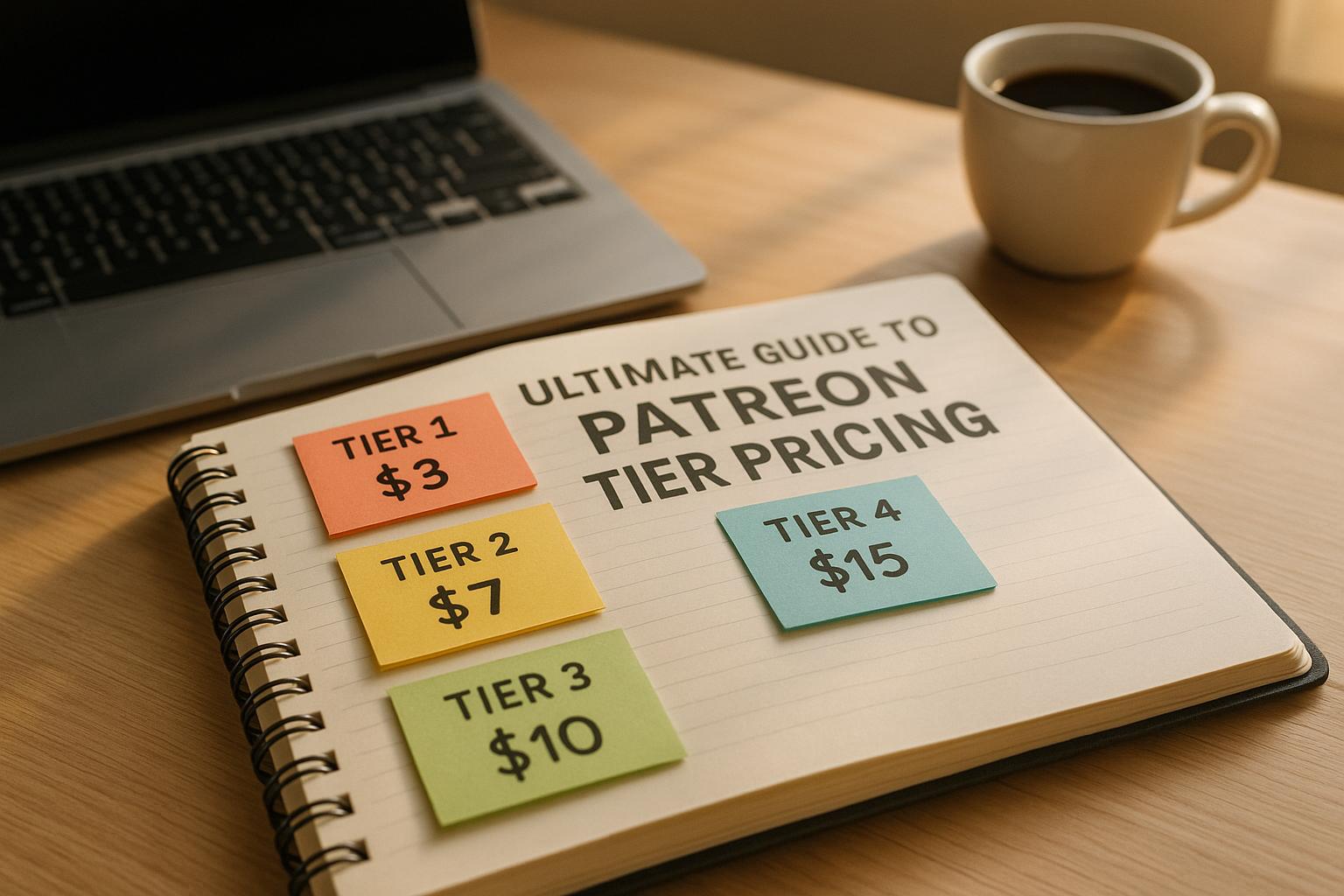
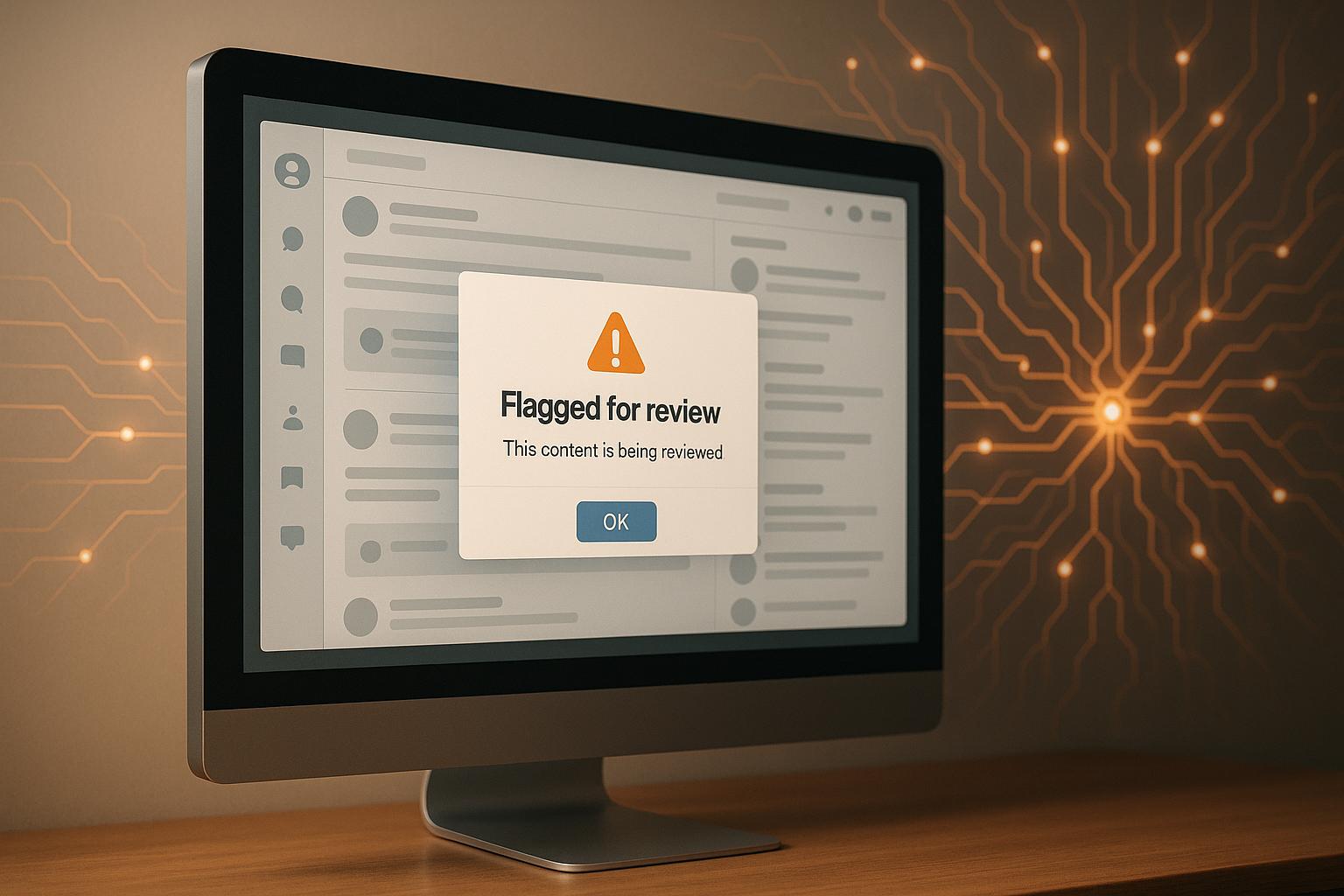

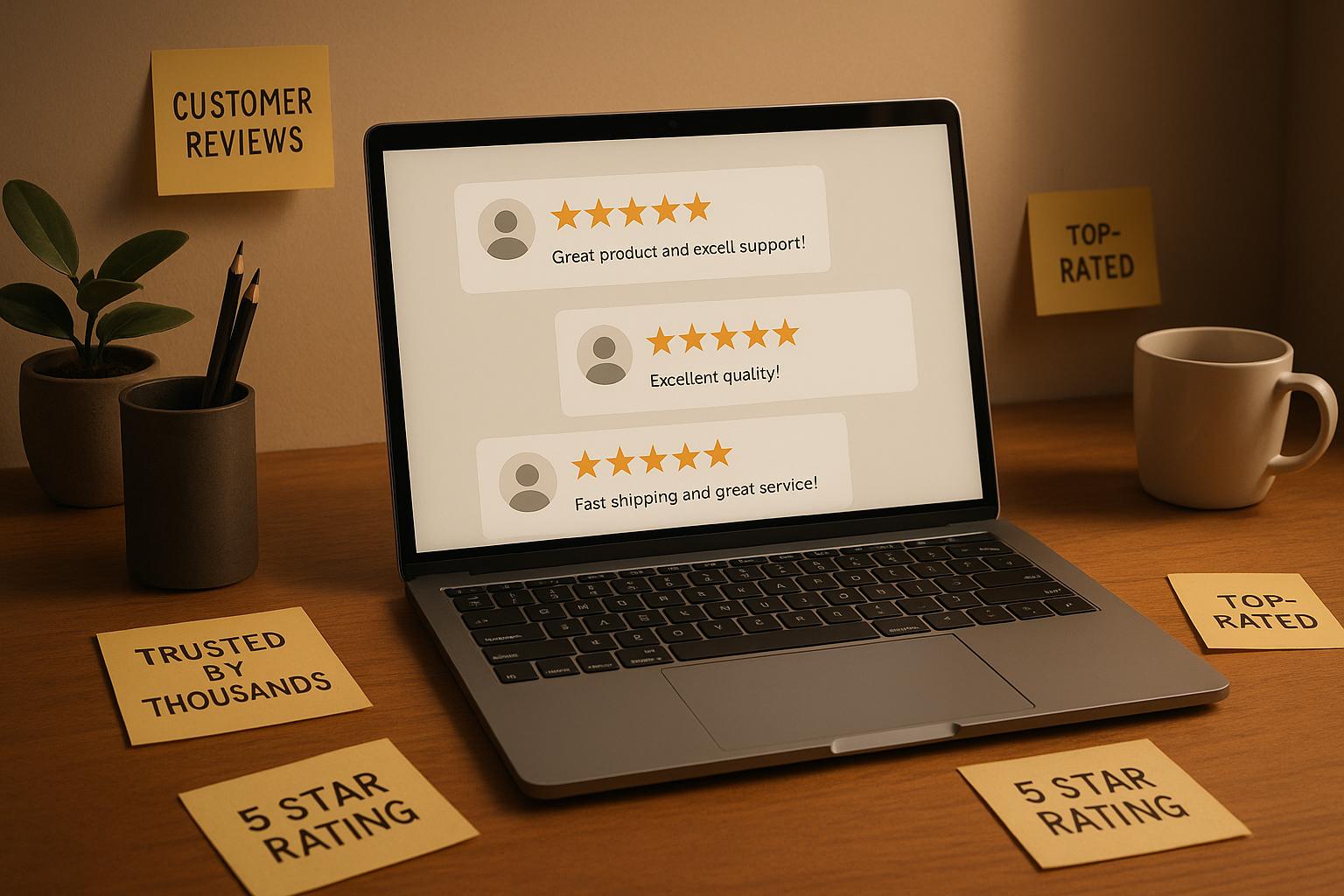




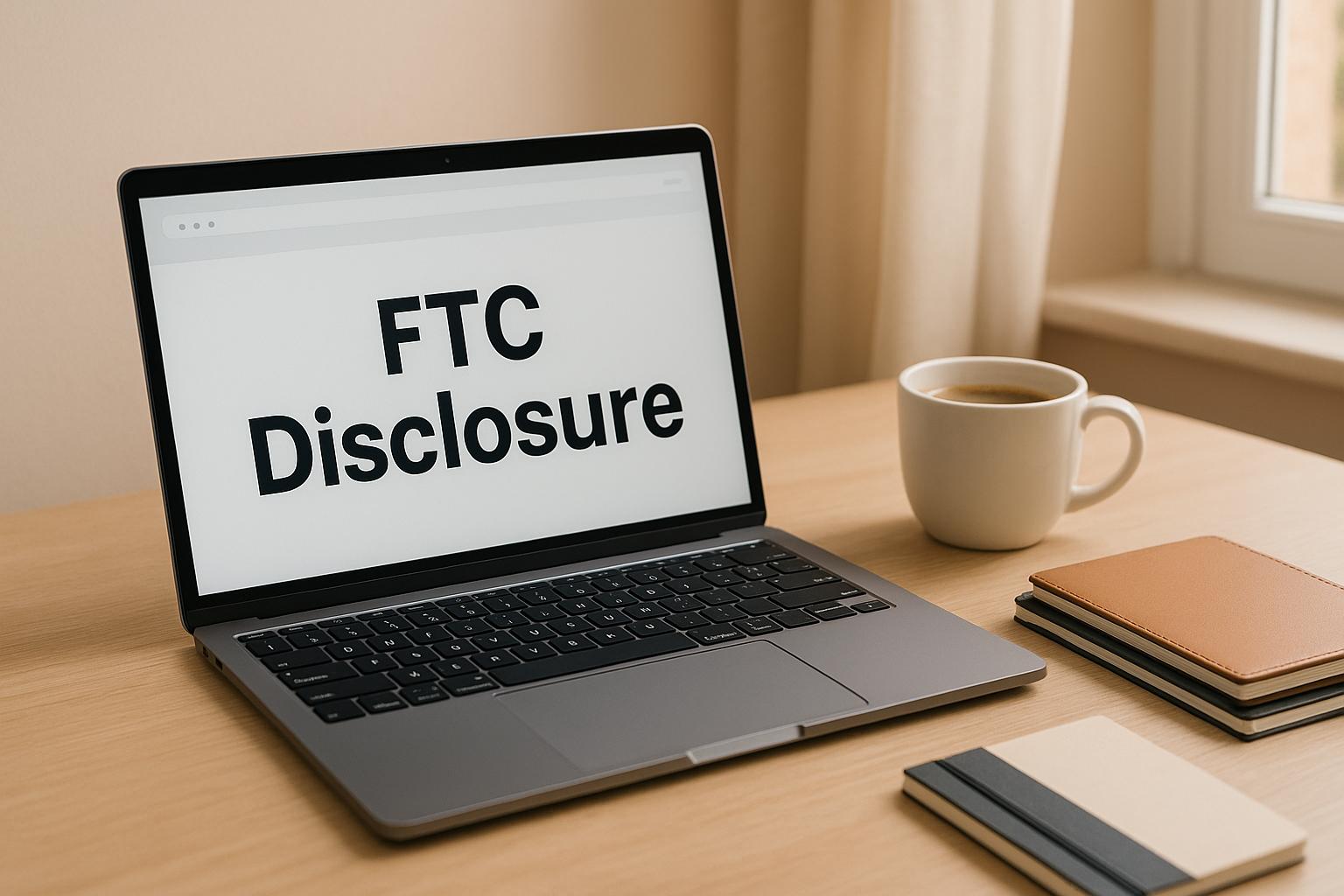

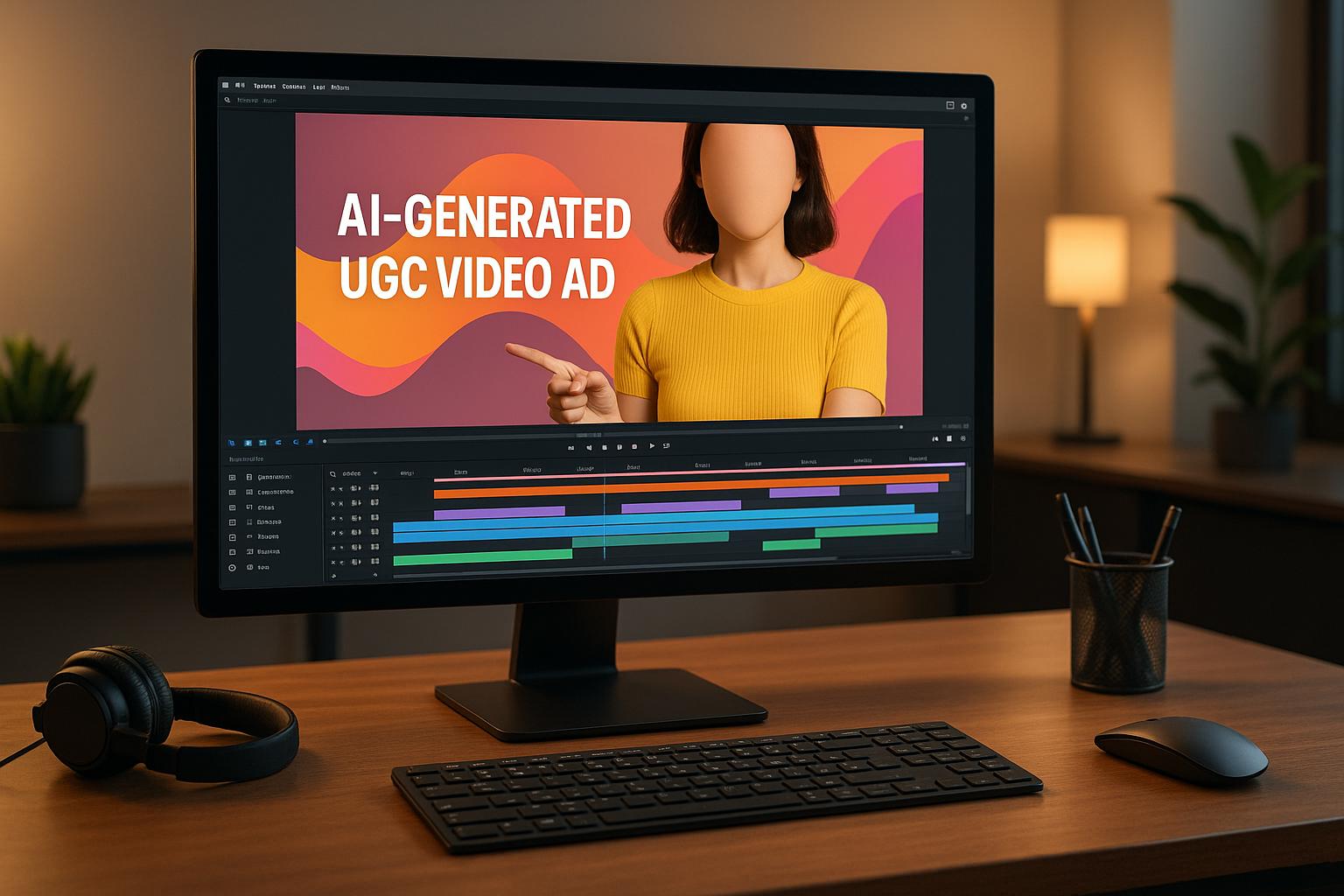


































![Top 7 Best Instagram Growth Services in 2025 [RESULTS]](/cdn-cgi/image/fit=contain,format=auto,width=null/https://cdn.prod.website-files.com/67840d1d88a886f29a66a4c1/6795d12917ee4501b9eddf73_6795c731964f791db3b566c4-1737870861582.jpg)


![UpGrow Review – The Best Instagram Growth Service in 2025 [TESTED]](/cdn-cgi/image/fit=contain,format=auto,width=null/https://cdn.prod.website-files.com/67840d1d88a886f29a66a4c1/6795040db42e404207732526_6794fd9c964f791db3b48de9-1737818779111.jpg)


